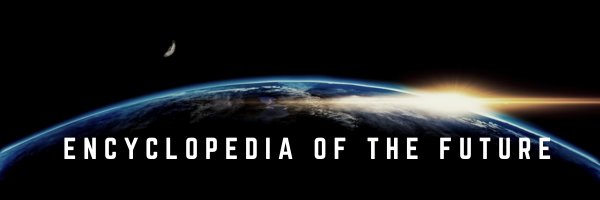As the pace of technological, economic, and cultural change accelerates, society finds itself at a crossroads. The tools we create, the decisions we make, and the values we uphold are converging to shape the future of our collective existence. Will we build utopian societies where technology enhances human flourishing and resolves longstanding inequalities? Or will we slide into dystopian futures dominated by control, conflict, and environmental collapse? The answer lies in how we respond to the challenges and opportunities ahead.
This chapter delves into the transformative forces shaping the future of society, exploring themes that touch every aspect of human life, from the cities we inhabit to the way we govern, connect, and express ourselves. It is a journey through possibility, guided by the insights of futurists, sociologists, and even science fiction authors who have long imagined the shape of things to come.
Reading Time: 4 minutes
Envisioning Future Societies
The future offers an array of potential outcomes, ranging from utopian visions of abundance and equality to dystopian fears of fragmentation and despair. Inspired by H.G. Wells’ The World Set Free, which imagines a world transformed by technology, and Aldous Huxley’s Brave New World, which warns of its darker potentials, this chapter seeks to explore the spectrum of possibilities. These scenarios not only reflect the trajectories of technological innovation but also the choices we make about justice, equity, and sustainability.
Urbanization and the Rise of Megacities
The 21st century is a time of urban dominance, as more than half of the global population now resides in cities. Urbanization brings immense challenges, from overcrowding and environmental degradation to social stratification. Yet, it also offers opportunities to reimagine urban spaces through smart technologies, sustainable design, and innovative governance. As Edward Glaeser argues in Triumph of the City, urban environments can be engines of human creativity, health, and prosperity when designed thoughtfully.
Governance and Community in a Technological Age
The intersection of technology and politics presents both promise and peril. Digital democracy and e-governance have the potential to empower citizens and enhance transparency, yet social media and artificial intelligence also threaten to polarize and manipulate public discourse. At the same time, communities—both physical and digital—must grapple with how technology reshapes social bonds. Whether building connections or exacerbating isolation, the role of technology in fostering resilience and belonging will be central to society’s future.
Identity, Culture, and Inequality
Technology is transforming how we define ourselves, consume culture, and confront disparities. As digital tools blur the boundaries of selfhood, questions of privacy and authenticity come to the fore. Cultural expression is becoming more accessible and participatory, yet the concentration of power among tech giants raises concerns about equity and representation. Meanwhile, the digital divide highlights the stark inequalities that persist, challenging us to ensure that technology benefits all rather than entrenching privilege.
Conflict, Globalization, and Sustainability
In a world marked by interconnectedness, the nature of conflict and cooperation is shifting. Cyberwarfare, AI-driven weapons, and geopolitical tensions pose new risks, while global challenges like climate change and pandemics demand unprecedented collaboration. As P.W. Singer’s Wired for War suggests, the intersection of technology and conflict is redefining the meaning of peace and security.
Building a Better Future
Ultimately, this chapter seeks to inspire action and hope. The future of society is not predetermined; it is shaped by the choices we make today. By harnessing technology with wisdom and humanity, we can strive for a world that uplifts all. As Steven Pinker’s Enlightenment Now reminds us, progress is possible when guided by reason, science, and collective effort.
This chapter invites readers to imagine, debate, and shape the future of society—a future that reflects not only our technological capabilities but also our shared values and aspirations.
Modification History File Created: 12/08/2024 Last Modified: 01/17/2025
You are welcome to print a copy of pages from this Open Educational Resource (OER) book for your personal use. Please note that mass distribution, commercial use, or the creation of altered versions of the content for distribution are strictly prohibited. This permission is intended to support your individual learning needs while maintaining the integrity of the material.
This work is licensed under an Open Educational Resource-Quality Master Source (OER-QMS) License.

